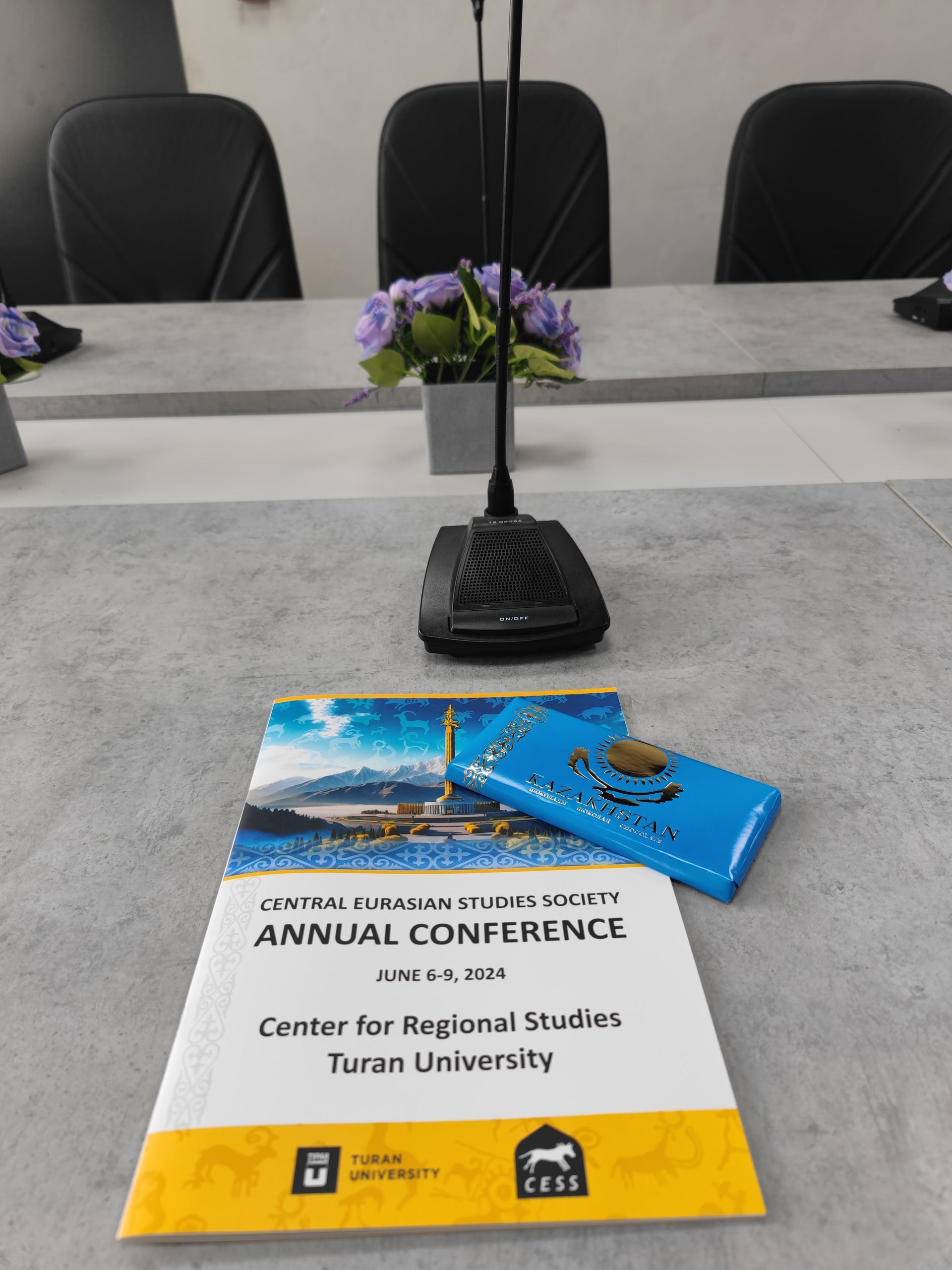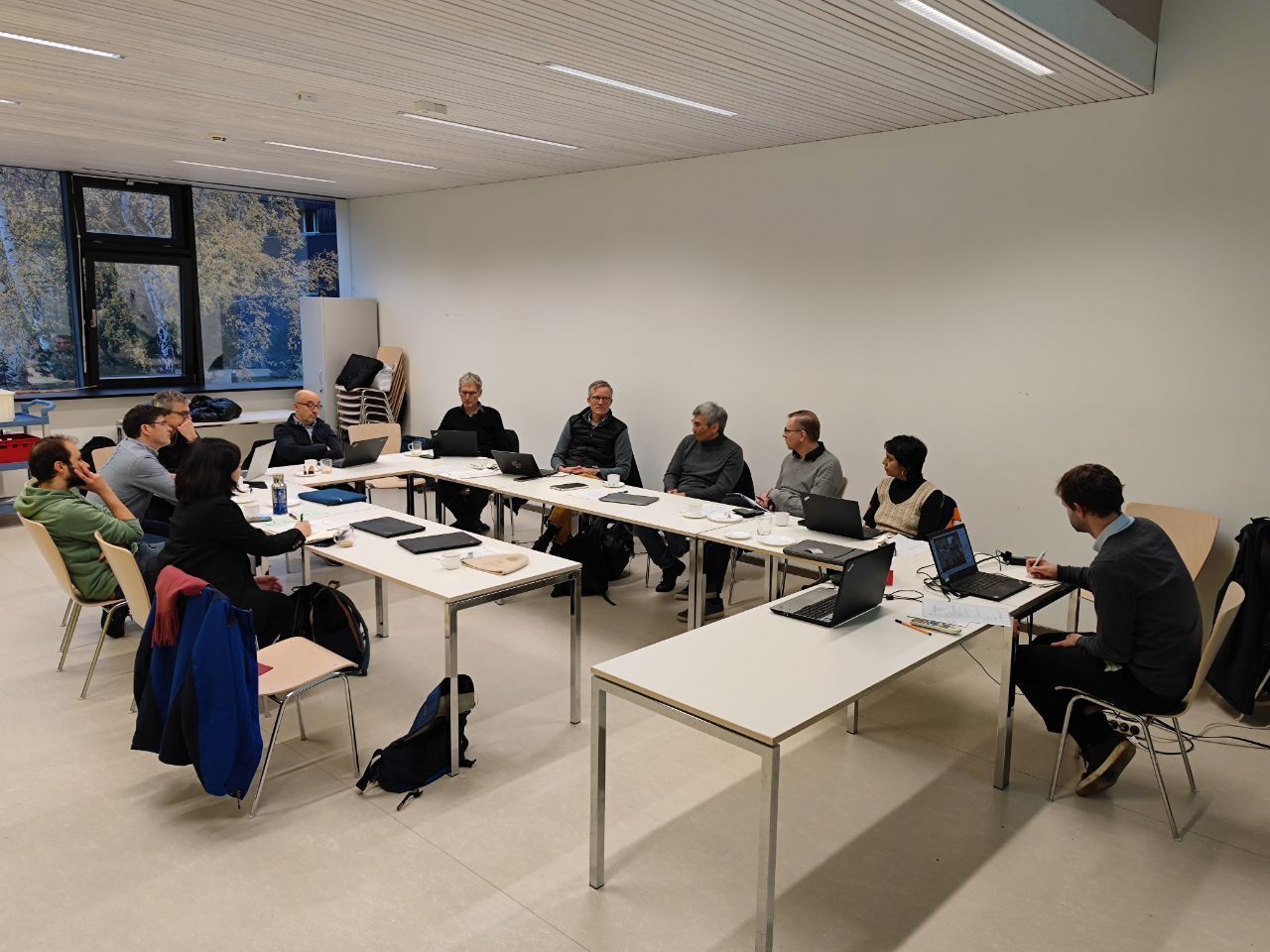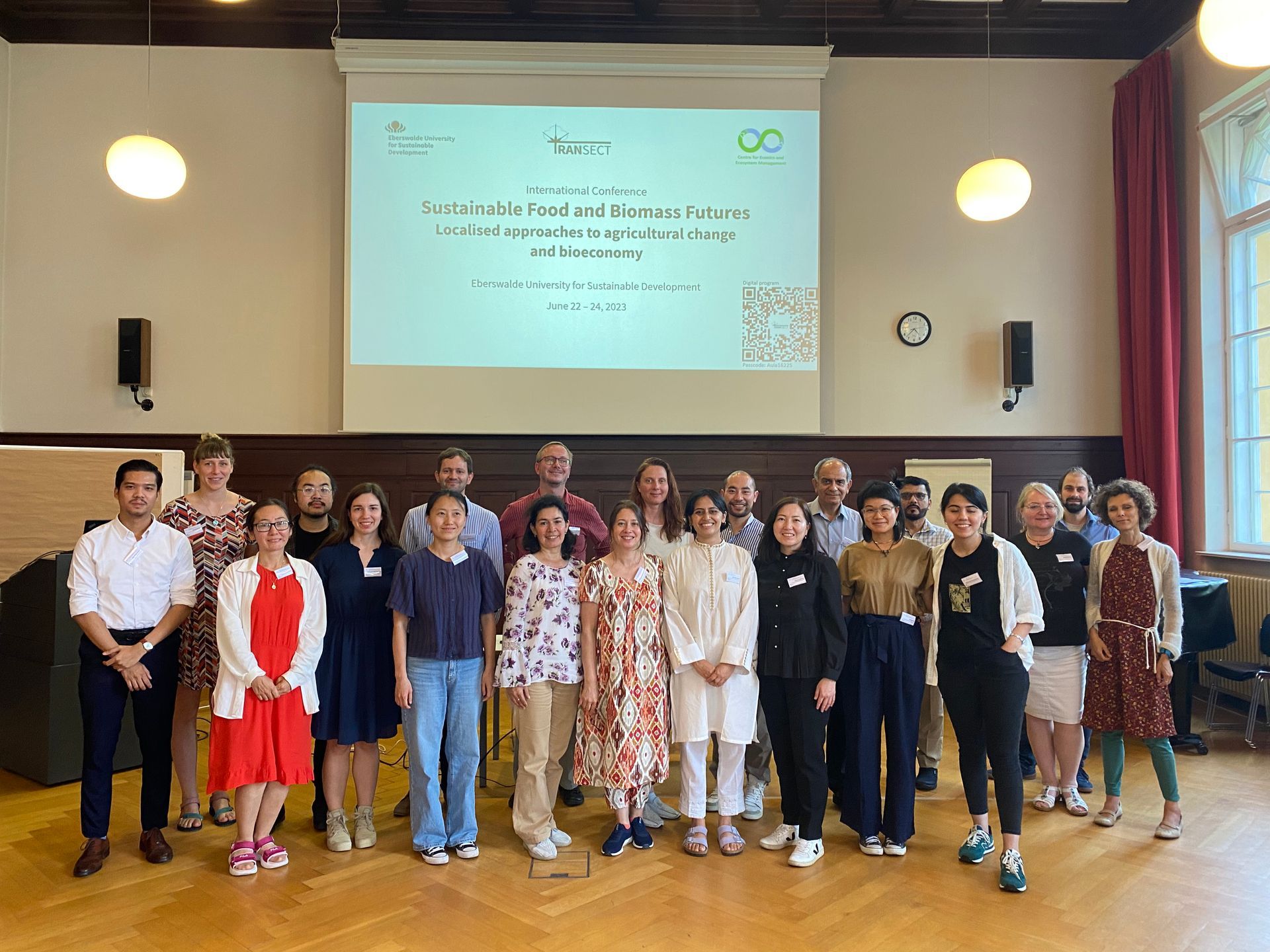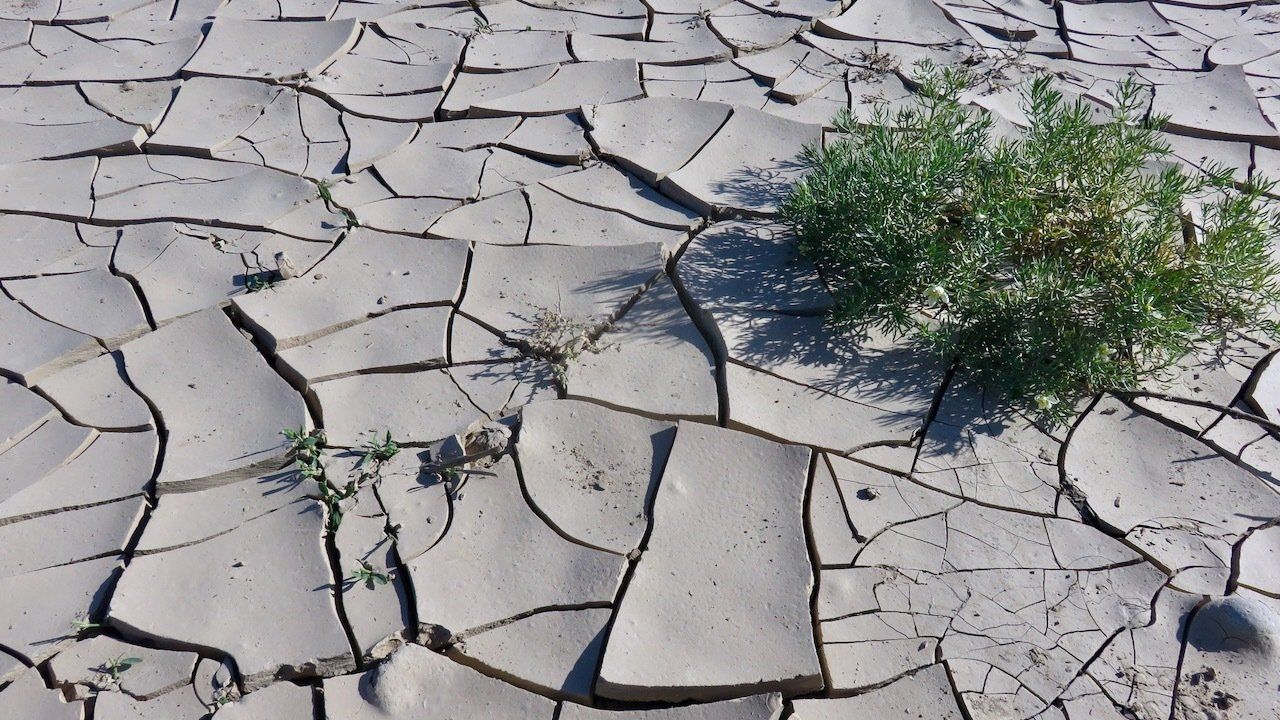
Drawing on his previous research in the Zhetysu region of Southeast Kazakhstan, he presented research findings on the changes and challenges of soybean monoculture. Henryk’s presentation was part of a panel focusing on monoculture and modernization in Soviet and post-Soviet settings that was jointly organized by Natalia Ryzhova from Palacky University Olomouc, Czech Republic, and him. One of the outcomes of the panel will be a joint journal article by Natalia, Peter Finke (of Zurich University) and Henryk, which is currently in preparation.

It was held in Lunds University (Sweden), Dodoma University (Tanzania), and Pontificia Universidad Católica del Perú, Lima (Peru) as a multi-sited and hybrid event. The theme of this year’s POLLEN was “Towards Just and Plural Futures”. The full program can be found here . Together with Irna Hofman, advisor of the TRANSECT research group, Michael co-organised a double panel on "Contested imaginaries? Eclectic pathways of agrarian change". In the hybrid panel with participants from two conference locations -- Lund, Sweden and Dodoma, Tanzania — we aimed to look behind the polarized policy and academic debates on agricultural development by focusing on local perspectives. Who owns the control over, and who governs, future production pathways? And how do farmers position themselves in the making of agrarian futures? The empirically-rich papers presented in the double panels included case studies from across the globe and addressed the diversity of actors that are implicated and/or involved in the making of agricultural futures, and with what result. Within this panel, Mehwish presented findings from South Punjab concerning spatial imaginaries of smallholder farmers for desired improvement in agriculture, looking deeper into factors related to histories, structures, and livelihoods that may limit the farmers’ possibilities to envision alternate agrarian pathways. In a separate panel on “Agrarian Transformations”, Aksana presented her manuscript in progress on the complex interactions among social, economic and ecologic variables that influence the decision-making processes of Tajikistani smallholders as they navigate the transition towards adopting organic cotton production practices. This transition, initiated and guided by the external actors, largely from the global North, emphasizes broader power dynamics and asymmetries inherent within the global agricultural system. She highlighted the vulnerability of smallholder farmers to the volatility of the global organic cotton markets, influenced by external shocks such as pandemics, wars, and natural hazards.
At the very end of year, after an extentend process of editing and re-editing, Henryk and Michael published the special issue entitled ‚Coexistence or competition for resources? Transboundary transformations of natural resource use in China’s neighborhood‘ in the journal Eurasian Geography & Economics. The issue contains six contributions and can be openly accessed under https://www.tandfonline.com/toc/rege20/current.

© https://www.bioecon-societal-change.de/ On November 10th, the TRANSECT team hosted the annual meeting of the junior research groups within the BMBF funding scheme "Bioeconomy as societal change" at the Eberswalde University for Sustainable Development (HNE). The program was moderated by Dr. Förster from Projektträger Jülich. Also present was Dr. Walter, representing BMBF Referat 725. The meeting brought together nine junior research groups of which four had recently launched their projects. The meeting shed light on several dynamic transformation processes concerning bioeconomy, covering topics such as social inequalities in biomass production, stakeholder mentalities, local knowledge, the bio-based construction sector, meat industry, use of agricultural residues, and bioeconomy policy strategies. For a more detailed report, please refer to: https://biooekonomie.de/foerderung/foerderbeispiele/biooekonomie-als-gesellschaftlicher-wandel-statustreffen-der-bmbf-gefoerderten-nachwuchsforschenden

© Henryk Alff 2023 Among the external advisors present were Ralf Bloch (HNE Eberswalde), Andrei Dörre (FU Berlin), Irna Hofman (University of Oxford), Ulan Kasimov (TU Dresden), Hermann Kreutzmann (FU Berlin), Daniel Müller (Leibniz Institute), Martin Petrick (Giessen University), Fabricio Rodríguez (University of Freiburg), and Matthias Schmidt (Augsburg University). The program entailed an update by the TRANSECT group on their progress since the last meeting (held in 2021). Henryk reported on agrarian modernization processes in South and Central Asia. Mehwish and Michael held a joint presentation on their research on the complex and multifaceted seed sector in Pakistan. Aksana presented her findings on organic agriculture in Tajikistan’s cotton sector and challenges therein. Christoph reported on his crop type mapping study in South Punjab. The team also reported on the participatory workshops held with the rural stakeholders of the 3 case studies in Kazakhstan, Pakistan, and Tajikistan and the preliminary findings of the workshops. Critical discussions followed each presentation. The afternoon was dedicated to the discussion of outlook for the TRANSECT group. All the participants, including the advisory board members, reported on their present engagements and future research plans and synergies were discussed. The day ended with a visit to the Tadshikische Teestube in Berlin where discussions continued in a traditional Tajik tea house setting.

At DKG’23, Michael and Henryk co-organized paper and discussion panels on various themes related to the TRANSECT research themes: Double panel “ The Great Convergence? Agricultural Modernization and its Others in Global Perspective ”, with Stefan Ouma, Bayreuth University Modernization, originating from different power centres (‘the West’, the former Soviet Union, China), remains the dominant paradigm of agrarian change. This session discusses points of con- and divergence among discourses on agrarian change in different parts of the world. Panel “ Putting China’s belt and road initiative into perspective ”, with Matthias Schmidt, Augsburg University This session investigates China’s and other transnational investments and development interventions abroad, with a focus on the Global South. Exploring local implications in the receiving countries, it questions the idea of a ‘Chinese exceptionalism’ in overseas engagements. Panel discussion “ Contested ecologies in Eastern Europe: Crises, politics, and activism ” with Alexander Vorbrugg, Bern University Russia’s 2022 invasion caused ecological havoc within Ukraine. It also had more indirect effects on environmental regulations and policies, and further issues, in neighbouring countries and internationally. Authoritarian tendencies in some Eastern European countries have an increasing impact on state environmental governance as well as activism, while past involvement of Western European countries and the EU in respective policy fields brought mixed results. The climate crisis, too, has an increasing impact on eco-politics in the region. Drawing on diverse, rich, and longstanding engagement with ecological issues in different Eastern European countries, the panellists address current events and their environmental implications, and geographers’ and activists’ responses to them. They also give insights into the longer traditions of environmental research and activism in ‘the region’, and how these matter for thinking about and conceptualizing political ecology and environmental issues more broadly and beyond this region. Moreover, Michael, Henryk, and Aksana shared their TRANSECT research in three different presentations: “ Chinese hybrid rice seed and the corporatization of agriculture in Pakistan ” (Michael Spies), “ Socio-economic factors affecting smallholder farmer decision-making in times of crises in south-western Tajikistan ” (Aksana Zakirova), and “ Modernisation beyond Soviet and Western technocracy? Lessons from agrarian practice for future sustainable agricultural development across the Central-South Asian divide ” (Henryk Alff). At Tropentag 2023, Mehwish contributed with a poster presentation on “ Is there a future for smallholder farmers in Bioeconomy? ‘Improved seeds’ based intensification in south Punjab, Pakistan ” (Mehwish Zuberi). This presentation was part of the session on governance and (bio)economic aspects of food systems transformation which brought together several contributions on the complexities of governing bioeconomic transitions in Global South agriculture.

From June 22nd to June 24th 2023, the TRANSECT research group held its final conference in HNEE’s city campus. HNEE President opened the conference with a welcoming address, followed by Dr. Michael Spies, the group leader of TRANSECT, who outlined the main objectives of the conference. As part of the BMBF's funding line 'Bioeconomy as Societal Change,' TRANSECT researchers have gained an in-depth understanding of agricultural dynamics in local case study areas in Central and South Asia over the course of more than four years. The two-day conference focused on localized research approaches towards agricultural change and bioeconomy development, featuring invited speakers from Kazakhstan, Tajikistan, and Pakistan. Moreover, it included thought-provoking papers from other regions of the Global South, as well as research groups and scientific centers in Germany. Lively discussions among participants enriched the scientific encounter and brought together perspectives from different geographic and thematic angles. The conference concluded on June 24th with an excursion to Eberswalde's forest botanical garden and the Biosphere Reserve Schorfheide-Chorin.

Dried soil after irrigation, Kazakhstan All photos © HNEE 2022 / Christoph Raab In May 2022, TRANSECT researchers and colleagues from Tajikistan conducted an extensive field data collection expedition in Jaloliddin Balkhi, a district in the south-west of Khatlon Region, Tajikistan. Data on crop types were gathered in order to derive a remote-sensing-based crop type map for the area of interest using these reference locations. For this, a classification algorithm will be applied to multi-temporal Sentinel-2 images in the future. As statistical data on agricultural land use are spatially aggregated, this will provide detailed information on the distribution and share of different crop types for our study region. The agriculture of the district is mainly characterised by cotton cultivation, which is irrigated using a network of large and small channels. Secondary crops include wheat, alfalfa (also called lucerne), fruit trees and other minor crops. Salinisation phenomena sometimes occur, often related to difficulties with the drainage of the fields.
